Are you looking to navigate the process of terminating a tenant lease with ease? Understanding the nuances of lease agreements can be challenging, but with the right approach, it can be a smooth transition for both landlords and tenants. This article provides a comprehensive letter template that ensures you cover all essential elements while maintaining a professional tone. So, let's dive in and explore how to craft the perfect lease termination letter!
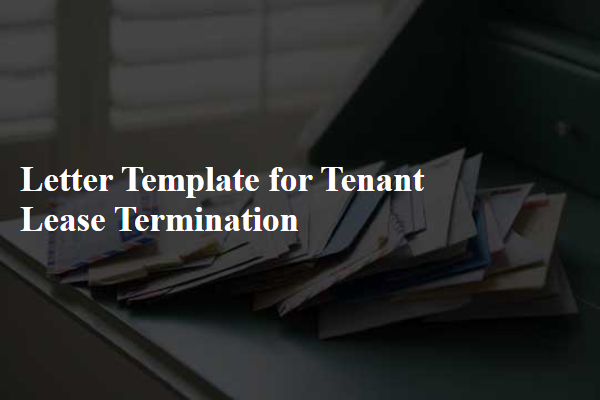
Tenant and Landlord Information
Tenant lease termination requires clear communication regarding essential details. The tenant's name should be included, alongside the complete address of the rental property, such as "123 Maple Street, Apartment 1B, Springfield, IL." The landlord's name must also be clearly stated, followed by their contact information for ease of correspondence. Important dates should be highlighted, including the date of the notice and the effective date of termination, often stipulated as a 30-day notice per local rental agreements. Any specific reasons for termination, such as personal circumstances or violation of lease terms, must be clearly articulated, ensuring both parties understand their rights and obligations according to local housing laws and lease agreements. This clarity helps in reducing potential disputes during the moving out process.
Lease Termination Date
A lease termination notice outlines the formal request from a tenant to end a rental agreement. The notice specifies the lease termination date, typically required to be provided in advance, depending on local laws such as 30 or 60 days prior. It should include the tenant's name, rental property address, and a clear statement of intent to vacate. Important details include reminders about the condition of the property upon leaving and how the security deposit will be handled. Compliance with specific local ordinances, such as providing notice through certified mail, can impact the effectiveness of the termination notice.
Reason for Termination
Termination of a lease agreement can arise from various reasons, including non-payment of rent, violation of lease terms, or personal circumstances. Non-payment refers to failure to pay rent on or before the due date, which can result in eviction proceedings. A violation of lease terms, such as unauthorized pets or substantial property damage, can offer grounds for termination, requiring formal notification to the tenant, often defined by local regulations. Personal circumstances may include a job transfer or health issues. Local laws and regulations dictate the notice period required, usually ranging from 30 to 90 days, depending on jurisdiction, ensuring that both tenants and landlords adhere to the legal requirements during the termination process.
Security Deposit Details
When ending a lease agreement, tenants may inquire about the security deposit details, which typically remain a top priority. The security deposit (commonly one month's rent), usually outlined in the lease contract, is protected under state laws and is meant to cover any potential damage or unpaid rent. Following lease termination, landlords are mandated to return the security deposit within a specific timeframe, generally ranging from 14 to 60 days depending on the jurisdiction. Deductions from the security deposit must be itemized and documented with receipts, ensuring transparency in the process. Maintaining the property's condition and adhering to cleaning expectations can influence the return amount, so tenants should document the property's state upon move-out to safeguard their interests.
Forwarding Address for Correspondence
When a tenant plans to terminate a lease agreement, it is crucial for them to provide a forwarding address for correspondence to ensure that any future communications, including deposit returns or legal notices, reach them. This address should be specific and complete, including the street name, apartment number, city, state, and zip code. The tenant should confirm that the forwarding address is valid and that they will be reachable at this location after vacating the rental property, thereby ensuring smooth communication. It's advisable to notify the landlord or property management of the forwarding address in writing, emphasizing the date of lease termination and any outstanding responsibilities related to the tenancy.

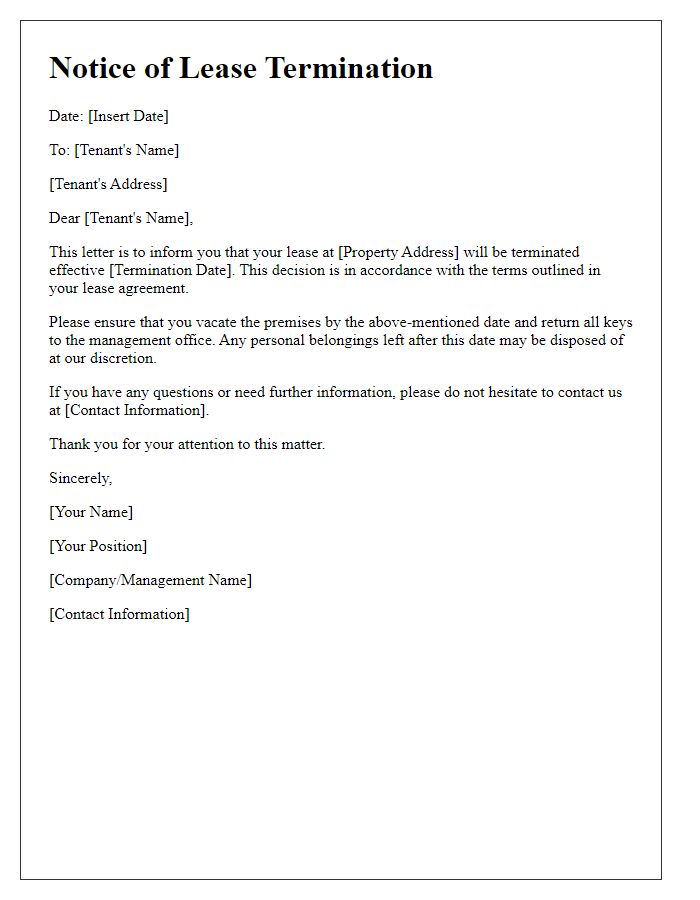
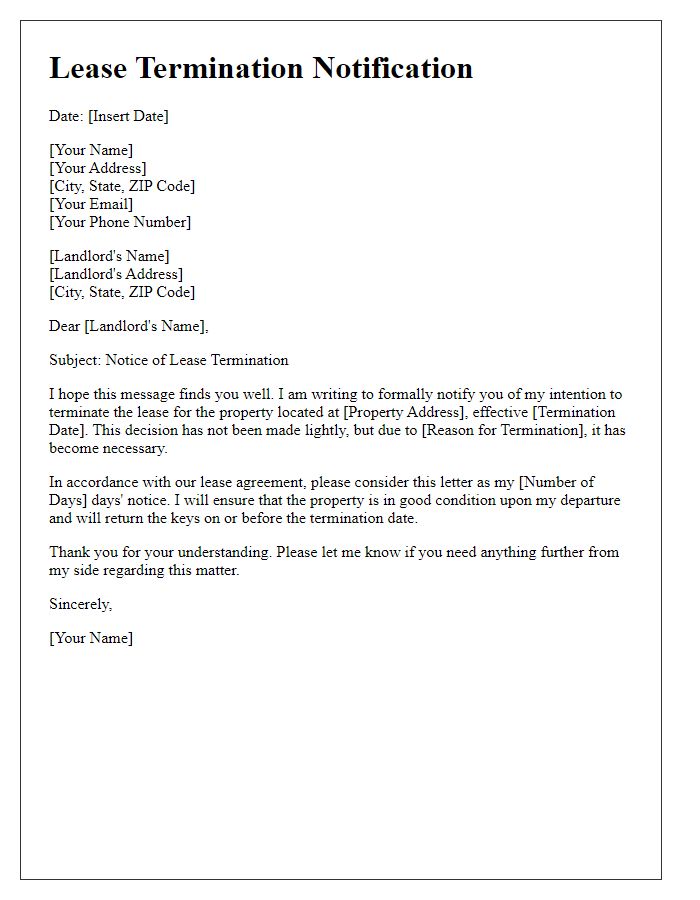
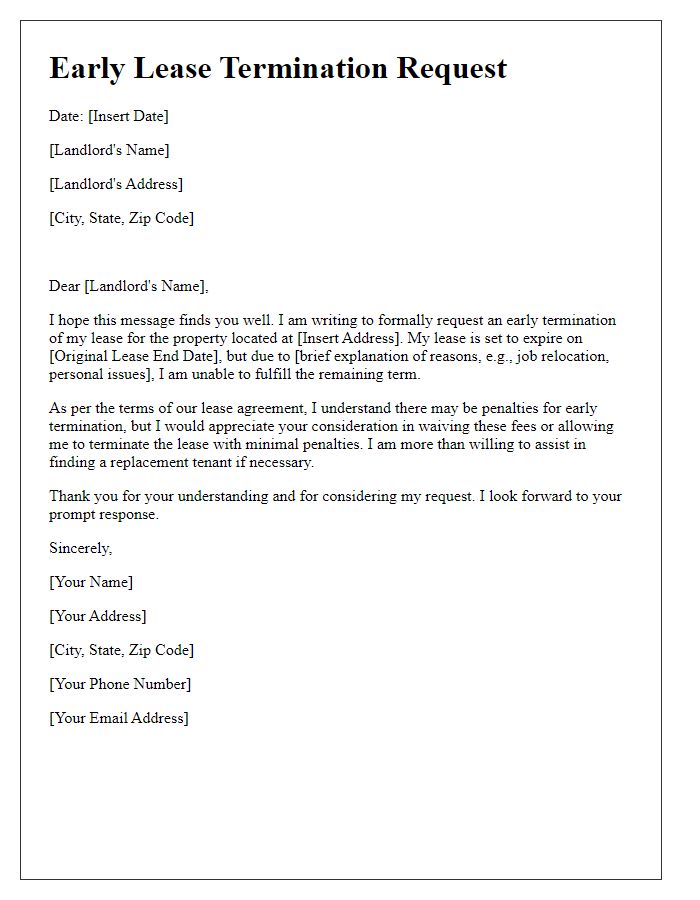
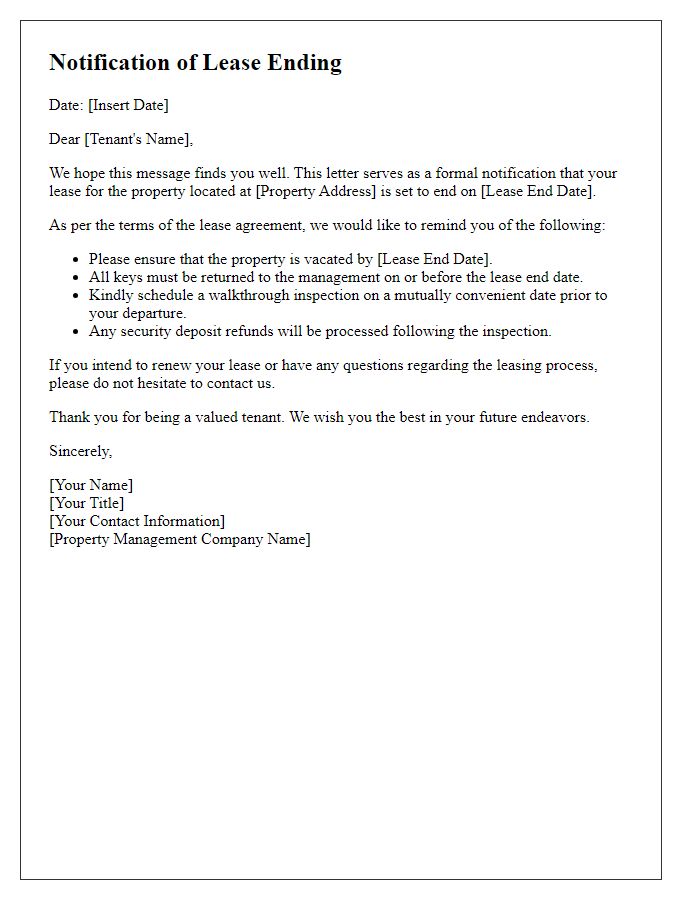
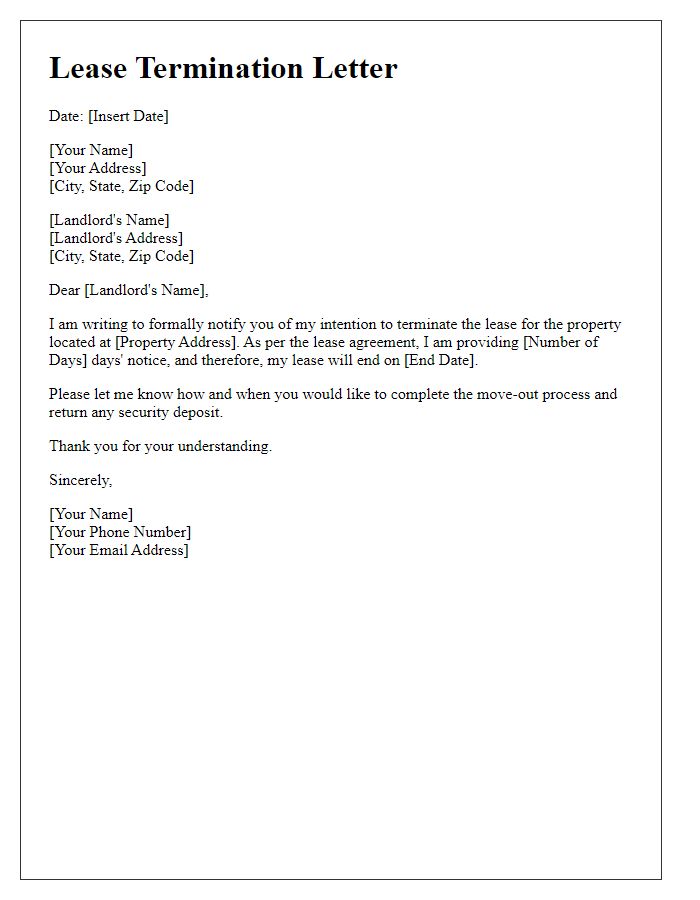
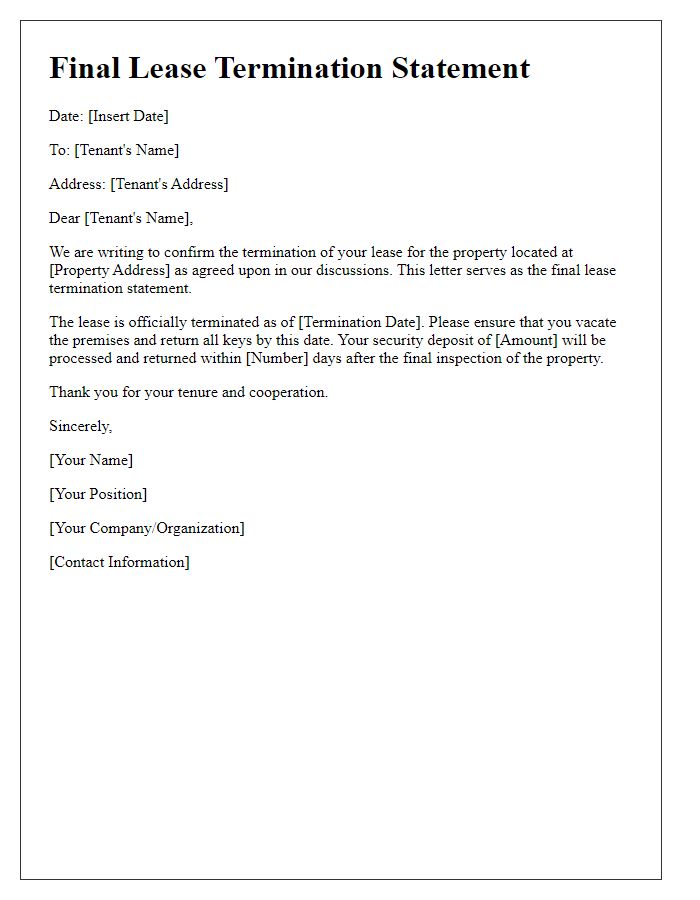
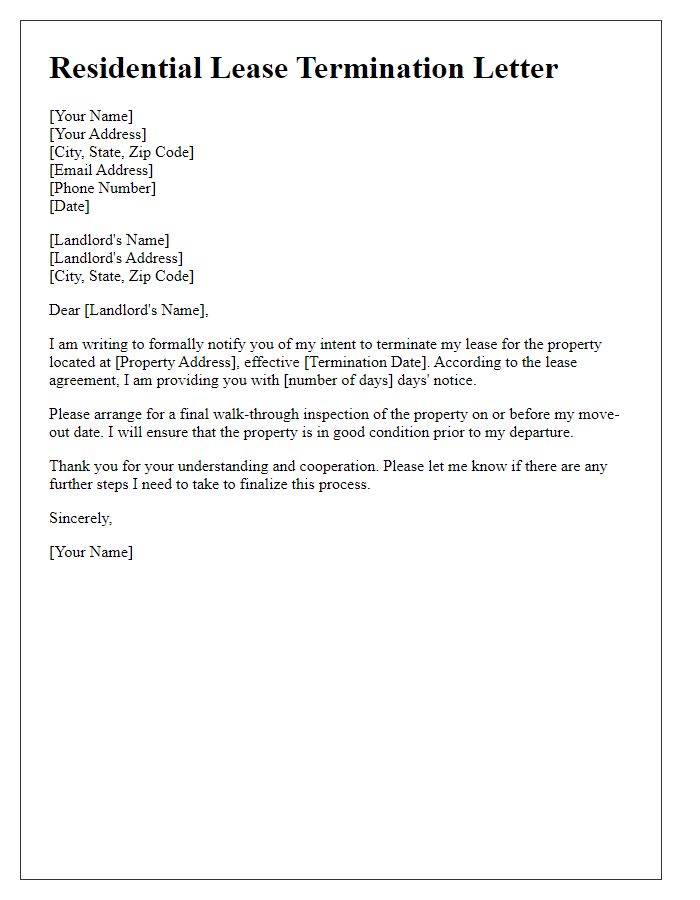
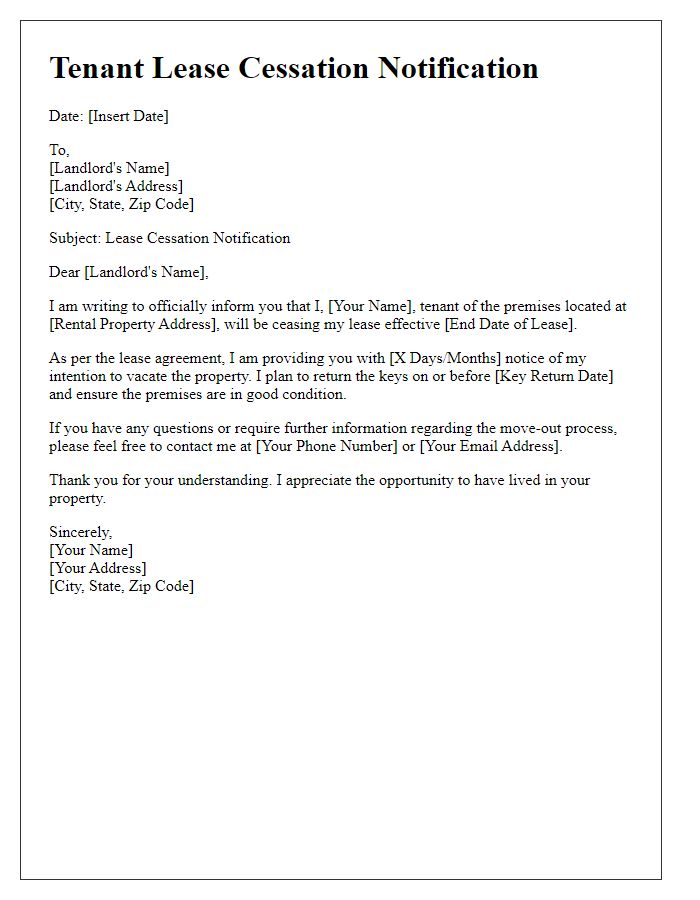
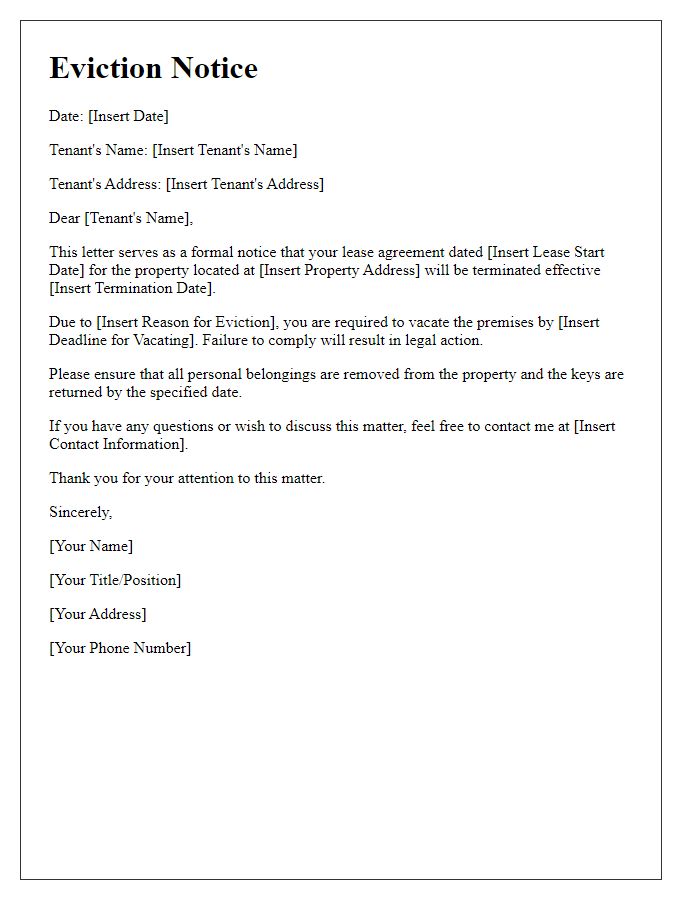
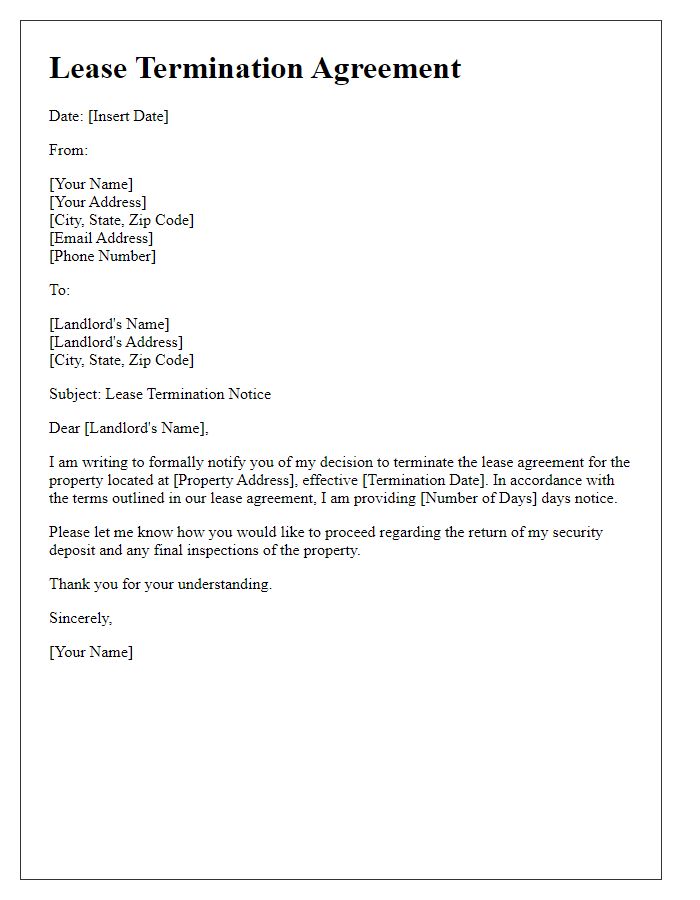

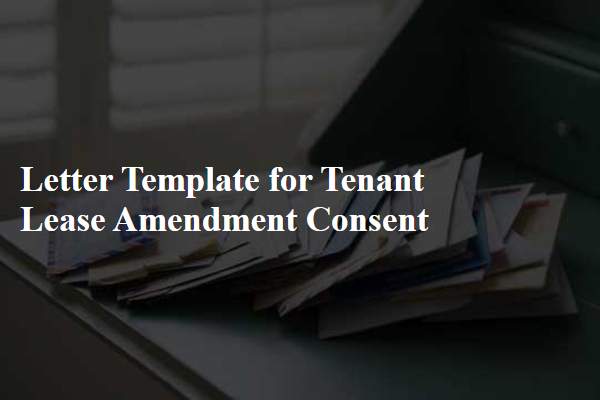
Comments